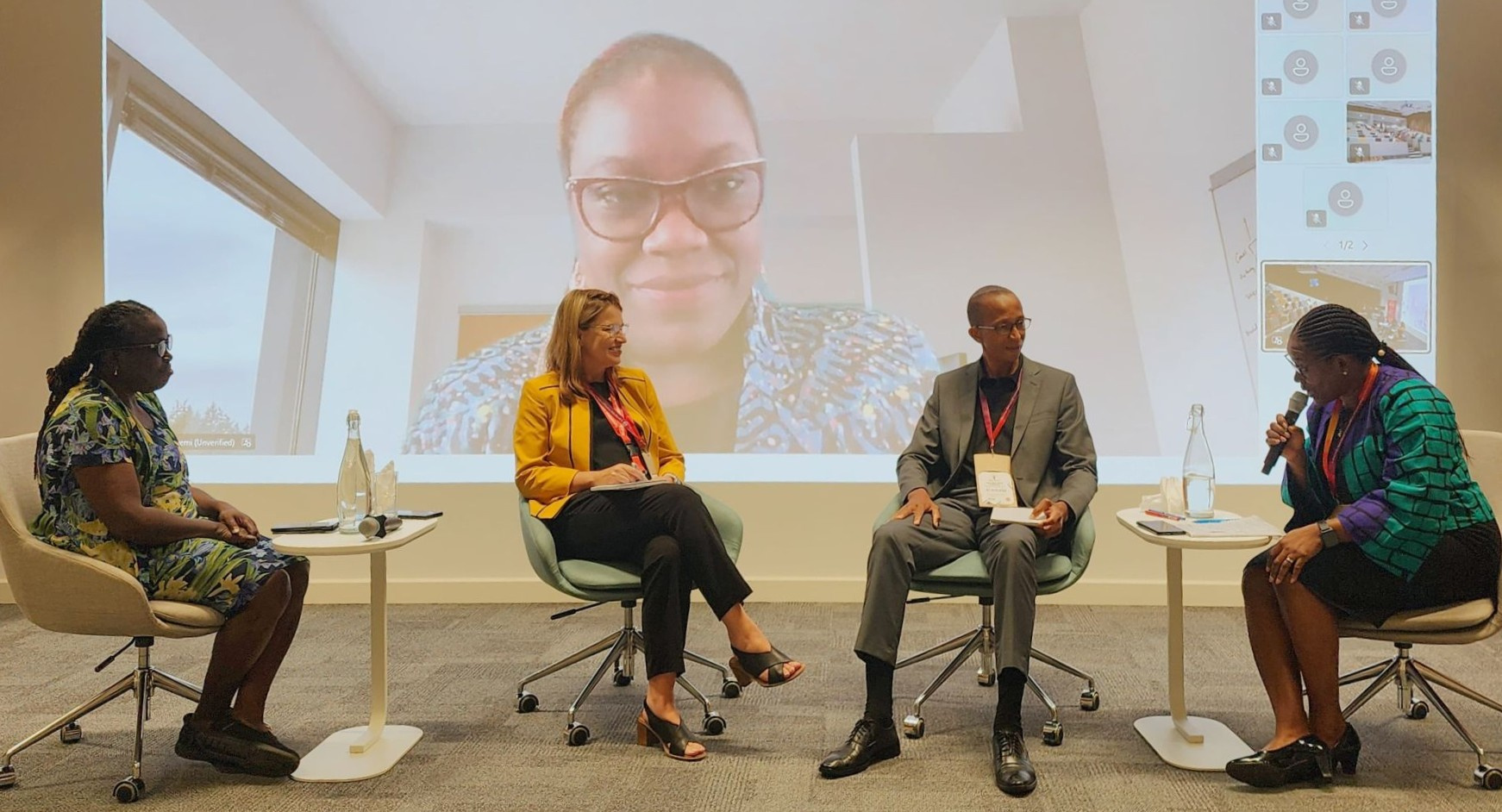Decolonising Business Ethics in the Age of Technological Acceleration
Susan Ackah, Globethics Western Africa Regional Manager
13 November 2025

As Africa advances into an era of rapid technological acceleration, the need to anchor progress in ethically grounded and culturally relevant principles has never been more urgent. This was the focus of the Absa BEN-Africa 2025 Conference held this November in Mauritius, under the theme “Innovative Technologies, Friend or Foe? Reflecting on Governance and Ethics.”
I participated alongside my colleague, Dr Carike Noeth (Southern Africa Regional Manager), as one of two contributors from Globethics, a gold sponsor of the conference. Dr Carike moderated a thought-provoking panel on “The Ghost in the Shell: Ethics, Humans and Artificial Intelligence in the Face of Technological Innovation.” I had the honour of moderating an ISBEE-sponsored panel on “Decolonising Business Ethics in the Age of Technological Acceleration”, which invited reflection on how business ethics can evolve to reflect diverse voices—especially as technology reshapes economies and social life in Africa and the global South.
Decolonising Approach
For decades, business ethics, governance, and technology narratives have been shaped largely by frameworks developed outside of Africa. While valuable, these models often overlook indigenous moral philosophies and communal accountability systems deeply rooted in African societies.
Decolonising ethics means making space for plural moral perspectives that integrate African histories, values, and contexts alongside Western frameworks. It begs the question: what does responsibility look like when grounded in African realities—where community well-being, human dignity, and stewardship of shared resources are central?
Africa’s ethical heritage, expressed through philosophies such as Ubuntu (“I am because we are”) and Botho (“A person is a person through other people”), invites a rethinking of business not merely as a profit-generating enterprise but as a vehicle for social balance, shared prosperity, and collective flourishing.
Technology and the Ethical Frontier
Technological acceleration presents both promise and peril. Artificial intelligence, digital finance, and data-driven governance can improve lives, enhance transparency, and foster inclusion. Yet without ethical grounding and governance, these innovations risk deepening inequality, power asymmetry and reinforcing dependency; a digital colonialisation, as it were.
An African perspective on responsible governance insists that technology serve people, not power; that innovation empowers rather than displaces; and that progress be guided by empathy, equity, and contextualisation. Ethical governance must draw from African value systems to ensure that digital transformation enhances human well-being and flourishing. This requires reclaiming ethical agency in shaping technologies and business models to strengthen African-led governance, participation, and ethics-by-design for inclusion and sustainability.
Education and Leadership for Ethical Transformation
The transformation toward ethically responsible societies depends on the leaders we nurture. Universities, policy institutions, and business schools play a vital role in embedding ethics into leadership formation. This requires cultivating ethical reflexivity, moral courage, and cultural awareness among decision-makers.
By integrating African moral thought into contemporary education and governance, we can shape leaders who balance performance with purpose, competence with conscience, and innovation with inclusion. Decolonising business ethics is therefore not an abstract idea but a practical and moral imperative for sustainable governance and responsible development.
From Mauritius to the Future
The Mauritius–Absa BEN-Africa experience offered a moment of shared reflection and renewed commitment to ethical progress in Africa’s development journey. I remain grateful to the organisers, partners, my fellow panellists and the International Society of Business, Economics and Ethics (ISBEE) for their collaboration.
As we look ahead to the upcoming ISBEE 2026 Congress in Yaoundé and other regional platforms, one truth stands out: Africa’s contribution lies not only in critique but in creativity—our capacity to model new, humane, and contextually grounded ways of leading responsibly.
Further Reading
- Sabelo J. Ndlovu-Gatsheni (2020), Decolonization, Development and Knowledge in Africa: Turning Over a New Leaf. Routledge+1
- Subhabrata Banerjee (2021), “Decolonizing management theory: A critical perspective”, The Journal of Management Studies. OUCI
- Kate Crawford (2021), Atlas of AI: Power, Politics, and the Planetary Costs of Artificial Intelligence.
- Abeba Birhane (2020), Algorithmic Colonization of Africa (essay).
- UNESCO (2021), Recommendation on the Ethics of Artificial Intelligence.
- Global Survey of Business Ethics 2022-2024: Teaching, Research and Training Volume 1: Introduction and Africa. Globethics